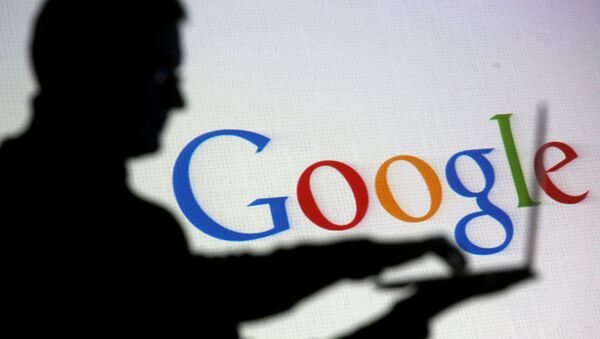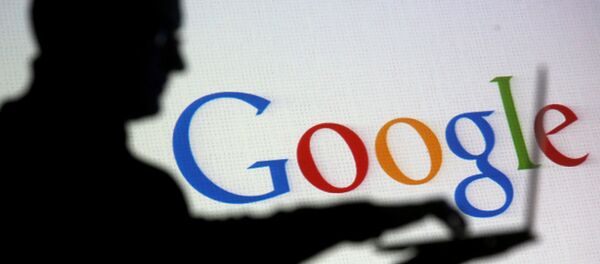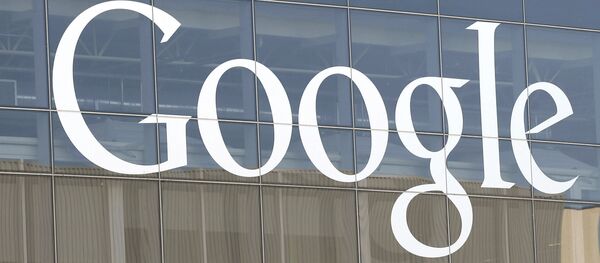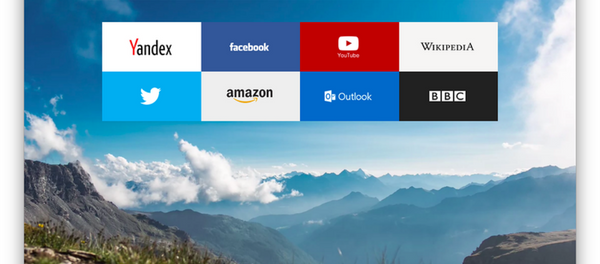Twitter and Facebook have already made similar claims and all three are now facing more scrutiny in the coming weeks before Congressional committees.
What is truly astounding about this hysteria over alleged Russian interference in US democracy is that American citizens are being distracted from what is, by far, the much more alarming issue of how their government and Congress is bought by US Big Business.
Google has reportedly said that another $53,000 worth of ads are "under review" for suspicion of being "linked" to the Russian government. This follows claims made by Facebook that it had earlier identified $100,000 spent on ads by Russian sources, while Twitter said it had located $274,000 worth of such ads.
The Russian government has repeatedly rejected accusations that it tried to meddle in the US election. Moscow rightly highlights the dearth of any evidence and total lack of due legal process. The American allegations have also whipped up a toxic climate to curb the legitimate media activities of Russian news channels.
It is understood that Russia’s state-owned news channel RT promoted some of its content through social media like Facebook and Twitter. But as RT editor Margarita Simonyan pointed out such promotion is entirely normal for all news media companies. She estimated that US-based outlets probably spent much more than RT promoting their content through the Russian section of Twitter.
The first is that, as with other claims of Russian interference in the US election, no evidence is ever presented. Facebook, Twitter and Google are making vague claims of “accounts believed to be tied to the Russian government”. And the US news media simply repeat these nebulous claims without further question.
A second anomaly is that Congressional committees that have been investigating allegations of Russian interference have also not presented any evidence – after nearly nine months of intensive probing.
Senators Richard Burr and Mark Warner, who are heading up a select intelligence committee, made a "big presentation" last week in Washington on their findings. The "findings" turned out to be an embarrassing anti-climax. The Congressmen admitted they found no evidence of "Russia collusion" in the election and baldly asserted that Moscow’s “influence campaign continues” which they will continue to investigate – no doubt at a huge cost to American taxpayers.
So, Russia is being accused of interfering in the presidential elections on the basis of the allegation alone, and yet American politicians are also contradicting themselves by saying that the alleged interference did not alter the vote outcome.
But here is the biggest absurdity. The sums of money claimed to have been used by Russia to destabilize US democracy are ridiculously minuscule.
That figure is a pittance compared with the avalanche of money that US corporations doled out to bankroll the election campaigns of the two candidates.
According to Bloomberg, Hillary Clinton’s election bid was leveraged with $1.2 billion from "Super-PACs" (Political Action Campaigns). Trump received less corporate money, raising a total of $647 million – or about half of what Clinton’s coffers received.
Now put those figures into perspective. The alleged Russian influence ads costing around $300,000 represent some 0.01 percent of what US corporations actually spent ($1.8 billion total) in promoting either Clinton or Trump for the White House. In other words, the much speculated – and highly dubious – financial outlay that Russian sources allocated to allegedly upset the American democratic process is negligible compared with the actual money spent by major American companies to determine the 2016 election outcome.
While American media and politicians are endeavoring to get citizens all worked up about “Kremlin meddling” the glaring fact is that their democratic process is subject to enormous US corporate influence. And not just the 2016 election. Every presidential cycle.
Note too that this is only taking into consideration the corporate lobbying in the presidential contest. Every year, it is calculated that US companies spend about $3 billion lobbying federal government and Congress.
Another source of major influence on American politicians are the lobby groups funded separately by the Israeli and Saudi government interests. Each year, these foreign states spend an estimated $5-7 million on lobbying members of the US Congress and the federal government. This is real money with real impact on US democracy as opposed to alleged Russian interference.
Getting back to “lobbying” by US companies – some might call it bribery – among the biggest donors are the military manufacturing firms. According to American publication, The Hill, included in the top 50 corporate lobbies plying Congress with campaign funds are Boeing, Lockheed Martin and Northrup Grumman.
Another major lobby – although not in the top 50 – is the National Rifle Association (NRA) which promotes gun ownership for private citizens by donating to Congress members.
Three recent events show how corporate money effectively buys American government policy.
President Trump is pushing for an overhaul of tax policy which will result in the biggest ever tax benefit to corporate America.
Thirdly, in the aftermath of the latest mass shooting in Las Vegas – the worst ever in modern US history – in which 58 people were mowed down by a 64-year-old male shooter armed with an arsenal of assault rifles in his hotel room, both the White House and Congress are adamant that “now is not the time to talk about gun control laws”. Congressional Republicans, in particular, are big recipients of NRA funding. Trump’s election campaign also reportedly received $30 million from the NRA.
In the gargantuan scale of corporate funding and influence on US democracy, it is patently absurd for US media and politicians to chase after Russia for alleged meddling.
There again, maybe not so absurd, if such a travesty serves to distract American citizens from the much more pressing issue of how their democracy is bought and sold by elite American interests.
The views expressed in this article are solely those of the author and do not necessarily reflect the official position of Sputnik.







